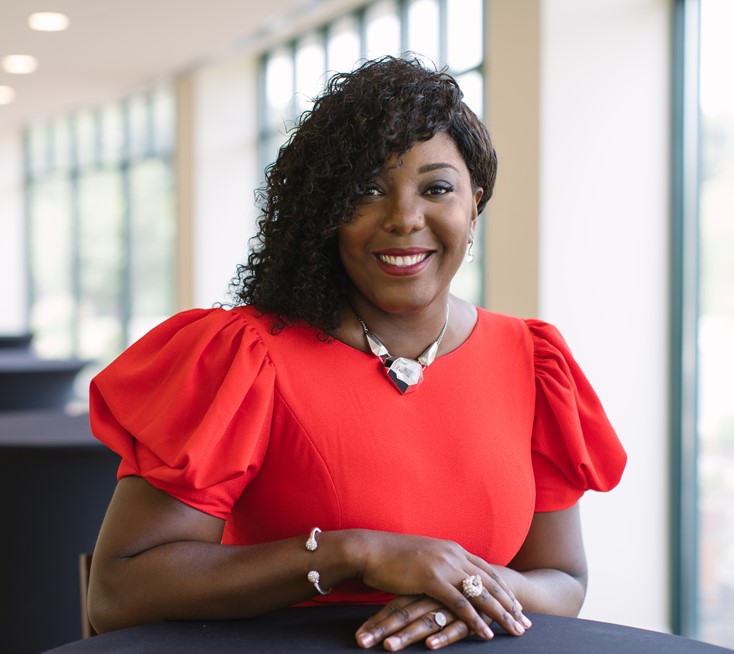This year, the conference landscape has seen its own shift as companies have pivoted toward virtual conferences. From Keller Williams’ own Mega Camp to numerous design and tech conferences easily accessible from the comfort of your own home, the barriers to entry generally brought on by high attendance and travel costs are lower than ever before.
Though attending a virtual conference doesn’t come with handshakes, a plethora of business cards, and the hustle and bustle of the a.m. coffee lines, it should not be discounted as a great way to form meaningful relationships and learn new strategies to accelerate your business. In fact, they provide advantages such as access to a wider breadth of content, more accessible cost, and not having to compromise on family time. Not to mention, they are a great alternative for introverted professionals to network while still feeling comfortable in their own space.
In preparation for Mega Camp 2020, Outfront chatted with three agents to discuss their top tips for making the most out of virtual conferences. Here is what they had to say:
Monica Rivera

Downey, California-based Monica Rivera began as an agent before moving into a productivity coach role and a market center team leader. As lockdowns began earlier this year, she managed to shift her business to a virtual environment quickly and has been successfully bringing more people to Keller Williams than ever before – so she knows a thing or two about building relationships in the digital world.
Strategically engage speakers and attendees.
When creating your plan of attack, differentiate between networking with speakers and networking with attendees. Before the event, be intentional in creating a calendar that focuses on sessions that will serve as a prescription for your business. Add these speakers on social media and begin engaging with them by leveraging your own social media audience. “When I go to a conference, I’m consistently posting calls-to-action on Instagram and Facebook,” Rivera says. “This way, my audience knows I will be attending. If I know I am going to be in a session with a particular speaker, I might drop a post on Instagram tagging the speaker, or sharing one of their photos. I always want to share the signal.”
To her own audience, she might pose the question, “What is the one most important question you’d like this speaker to answer?” Not only does this provide value in the moment, but it also allows Rivera to tap into this content bank inspiration down the line.
To engage with fellow agents, look no further than special groups and professional networks – examples include young professional groups and global networks. Generally, they will host smaller events complementing the conference, which are great networking opportunities. Engage these groups by asking, “Where is an area in your business or life that I can help?”
Support your fellow agents.
As you grow your own referral network, help fellow agents achieve the same. Before an event, Rivera takes time to huddle with her agents and create ‘conference prescriptions.’ They will look at which sessions will benefit each individual agent and think about who would make good connections. From there, Rivera will look up the conference tag on social media, zero in on agents from her particular area of interest, and send them a direct message offering the intro. To make sure her profile is noticed, she will follow them, like three posts, then comment on one of them, mentioning the fact that she sent a direct message.
The conference isn’t over when it’s over.
Step away from the mindset that your virtual conference is over as soon as the sessions end. Continue the momentum by following up with everyone you interacted with during your time online. While Rivera admits it is a bit more difficult to create an emotional imprint online, there are ways you can set yourself apart. “We have to create that safe environment in a virtual context,” she says. “Part of that is going to be in the follow-up.”
After the conference, Rivera will also post sizzle reels of particular sessions. “I’ll encourage my audience to comment with an emoji and drop their email if they want my notes from a particular session,” she says. “Now I’m doing two different things. I’m building a database at home and I’m identifying who’s interested in a particular type of content. Now I can follow up with them.”
Chad Murdock

Since 2011, Chad Murdock’s business has been growing 50% year over year. In 2019, The Murdock & Manwaring Company closed 420 deals and brought in $2.8M in GCI. His virtual conferencing strategy? Creating a distraction-free space and free post-conference events that will offer value to fellow agents, laying the foundation of a strong relationship.
Build a bunker.
As he prepares to take in the learning opportunities available during virtual conferences, Murdock has the following checklist in place:
-Put every session you are attending on your calendar and mark it as busy. People need to understand that you will be unavailable during that time.
-Decide which area of your home you will use as your conference space.
-Have a plan for getting rid of all distractions: phones, laptops, etc.
Plan your own networking event.
Just because a conference is virtual doesn’t mean happy hours, meet-and-greets, and other nonofficial conference events are off the table. One way Murdock plans on connecting with fellow agents is by hosting a value-packed free course on Zoom. As a Mega Camp attendee, he will be hosting a course on “How to Make $100K During Your First Year of Real Estate.”
“Try to find new ways to add value,” he says. “There has to be a draw for people to jump in there. For us, it is helping people make money. If you’re interested, we know how to do it.”
Amina Blake-Foreman

As a Keller Williams market center team leader who also has her own team, Amina Blake-Foreman is experiencing business success on all fronts. The market center is off to a good year, bringing in $355,000 in profit share. For her own team, Blake-Foreman is on track to bring in around $16M in volume by year’s end. When it comes to virtual conferencing, she’s all about the prep work, ensuring a smooth transition for event day.
Set your intentions.
Though the conference format may have changed, your mindset going into the conference should remain the same. Before day one, think about what you want to get out of the conference by pondering any current challenges your business might be facing. In addition, anticipate the moment you do connect with a top-performing agent by putting together the three most important questions you would ask of them. Have this information in your back pocket as the conference commences.
The aftermath of the conference is just as important. “You won’t be able to implement everything between now and the next big training opportunity, so look through your notes and pick out three things that you want to implement in your business in the next 30 days. Then, take action,” she says.
Familiarize yourself with the conference platform.
Take some time to understand the platform’s features before hopping onto it on conference day. The platform used for Mega Camp allows users to fill out their profile and get matched with others based on similar interests. Once you are matched, follow them on their social media platforms for an extra touch.
For Mega Camp, Blake-Foreman is bringing some virtual guests along for the ride. “We’re going to have a pre-Mega Camp Zoom call; during which we will all set up our profiles together, then select our learning paths and just walk through the platform,” she shares of her strategy. “We will also have a live support Zoom available to agents and guests, during which members of our market center executive leadership will take turns making themselves available for any questions.”